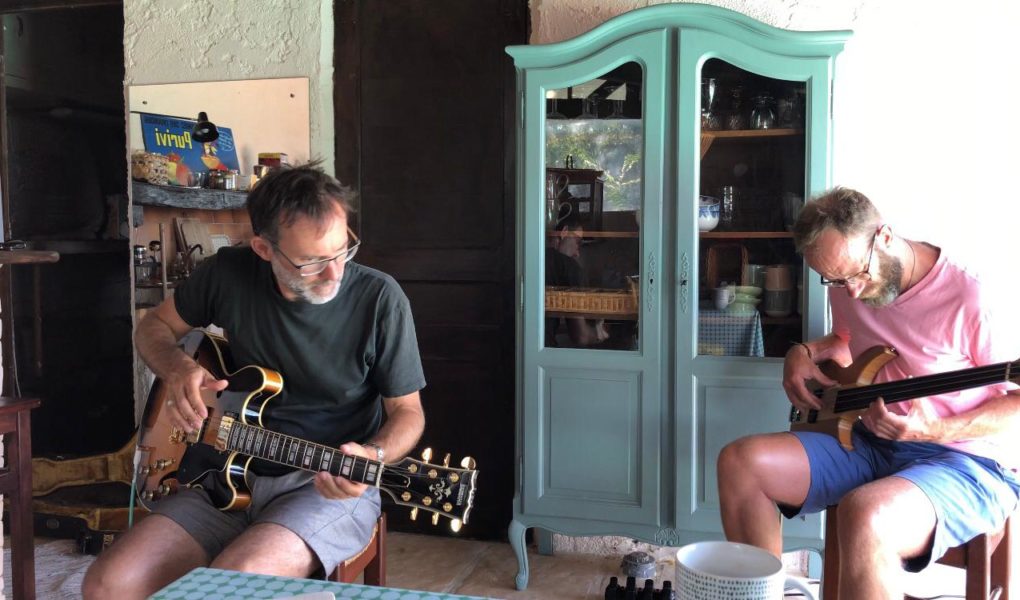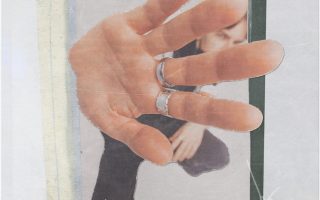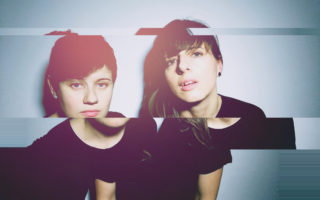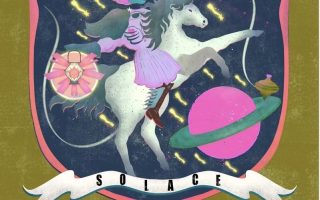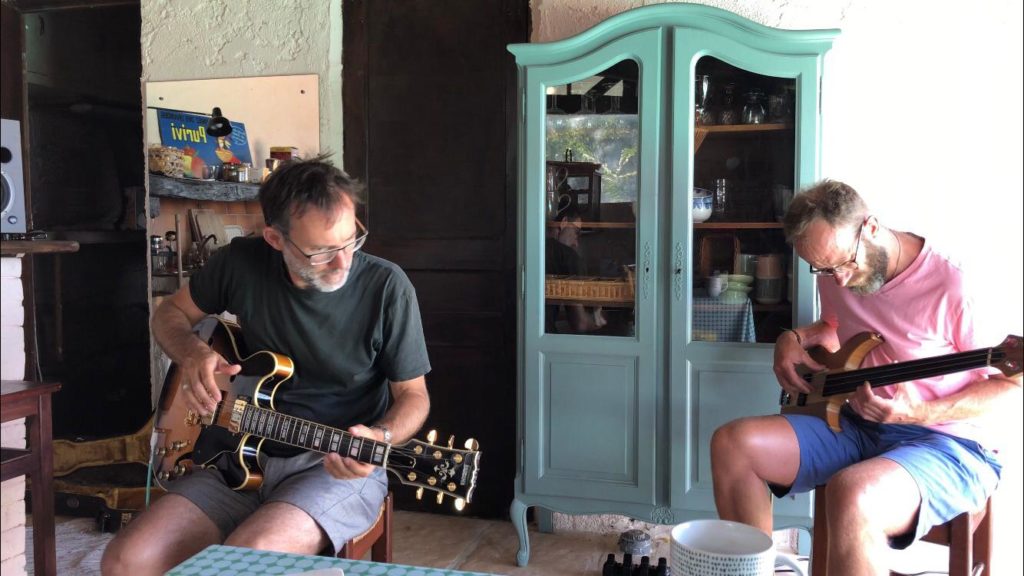
Congratulations on the release of SE18, how does it feel?
Thank you. It feels great. It went though so many different phases in its creation – a long gestation. Lots of elements came together and finally communicated what we wanted.
It was also the first time we had an At Swim album mastered by someone else, which meant there was a cut-off point and deadline after which we couldn’t edit any more. That was a new thing for us in the creative process.
You are in the band At Swim with Ben Ackland what was the catalyst for this?
We’ve known each other since primary school. We had a band when we were teenagers. We then did an album in 2005 – The Liking of Things by AGK on Big Chill Recordings. But having a family meant putting music on hold until, a couple of years ago, we discovered we were both playing again and we decided to explore playing together and, in particular, try improvising rather than writing and playing ‘songs’. Improvisation was a revelation, that really works for us and is how all At Swim music starts its life.
You both grew up in a very historic part of London, what are your earliest memories of music growing up there?
Music was always present in the family home. I remember playing my parents’ collection of 7” singles from the 60’s on my Mum’s old Dansette mono record player – the kind where you can stack half a dozen records on the spindle and after each record finishes the next one drops down and plays. It was also what I used to play the first records I owned – so Adam and the Ants and Duran Duran ended up in mono – I didn’t mind as I poured over the lyrics in the sleeve inserts looking for (probably non-existent) deep meaning.
At that time in South East London there was always a sense of music around – whether it’s because you knew where Kate Bush lived, or where Boy George’s parents lived, or because someone’s older uncle had played in a band with David Bowie.
I also remember, for years, my Dad used to go and listen to jazz at The Mitre pub on a Tuesday night. That was always mysterious and grown up to me. I didn’t even know what jazz was!
The album is inspired by your memories of growing up on Shooters Hill, what made you do this?
That idea emerged organically whilst we were recording it. We paid a visit to the area and other spots not so far away around the Thames Estuary. Voices heard and memories revived gradually formed the vision that became the SE18 album.
What’s your favourite track from it?
Face(s). It sounds like nothing else we’ve done. I’d like to think it sounds like nothing anyone else has done either. You tell me!
What was the easiest and most challenging part of the process?
The easiest was the track ordering. It’s a strange part of the album process as you’ve already recorded the tracks – finished them in fact – but you’re still not entirely sure how they will slot together. This time it just fell into place.
The most challenging part was the temptation to overdo the SE18 links one way or another. In the end I think we exercised restraint, and even removed elements in a series of iterations which ended up paring each track back to its essence.
Shooters Hill is famous for its woods. What’s your favourite spot there?
Whilst we were recording we went up to Severndroog Castle which was always a favourite childhood spot. However, I used to live in Craigholm and in the woods between there and Severndroog there are the ruins of an old house. It’s on what was (maybe still is) hospital land, but we used to climb under the fence into the wood and play in the foundations. All very Just William.
What is your favourite memory of living in the area?
My favourite memories are playing in the field behind Christchurch School. Halcyon days.
What are you listening to at the moment?
Pretty much all over the place, as usual – Psychic TV, Robert Fripp, lots of new artists on Bandcamp, and a bit of a reggae and On U Sound dub phase.
COVID has affected the creative industry in a big way, what’s kept you motivated?
Certainly detachment from seeing it as an industry and just riding the wave of the need to play and explore. That’s no consolation for those who rely on it being an ‘industry’, but being someone who both creates and works in creative industries I believe in the resilience of the scene and the people in it. The government’s attitude – oblivious to the needs of the creative industries – also underlines how important it is to keep on keeping on, and support one another.
2020 was a time to reflect what did you learn about yourself?
Nothing earth-shattering; but the importance to prioritise small habits that provide part of one’s even keel.
You are a guitarist, who are your top 3?
Despite the guitar being my main instrument, I’m not really one to seek out great guitar players. I mean, I don’t really listen to the classic famous ones like Clapton, Hendrix, etc. The exception is Mark Knopfler, whose guitarwork with Dire Straits has some of the most lyrical beauty I’ve heard.
Phil Palmer – for his work on David Sylvian albums in particular (tracks to seek out are When the Poets dreamed of Angels by David Sylvian, and Red Earth by Rain Tree Crow).
Robert Fripp – his ambient work has been, and continues to be, spell-binding.
Wayne Krantz – I actually don’t know his playing, but his writing on improvisation technique set me free from the tyranny of everything I had learned about guitar playing and the habits I had formed over the years.
What’s next for you?
Collaborations. We did a remix for Alucidnation (https://alucidnation.bandcamp.com/album/medications-meditations-remixes) recently. Not only was it a lot of fun to do – to work with someone else’s material – but Ben and I have been talking about potential to work with other musicians.

